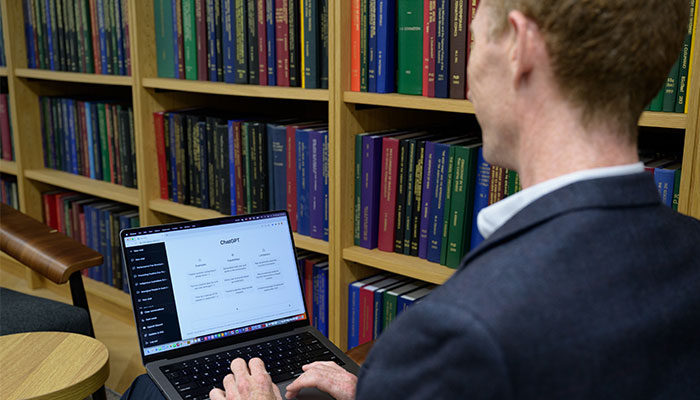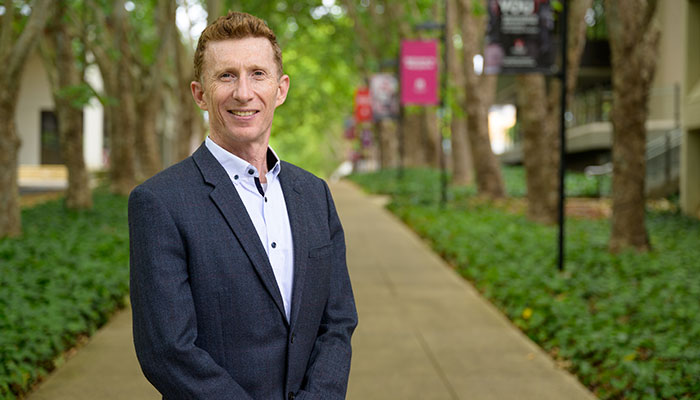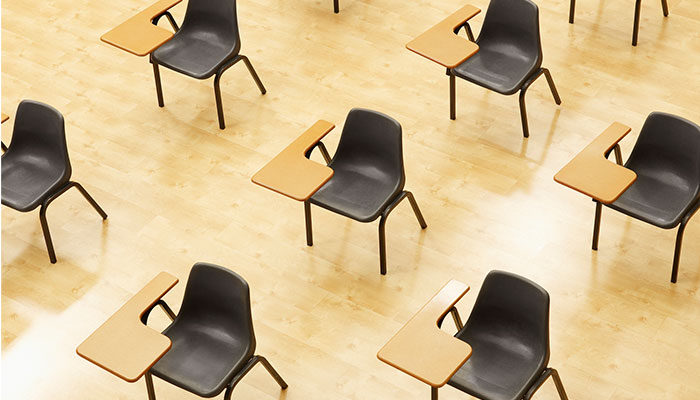Universities and education administrators worldwide are grappling with the emergence of the free AI tool, ChatGPT, with Australian educators preparing for the start of a new school and university year facing an overhaul of lesson plans.
“This latest evolution of AI marks a wholesale leap in the level of assistance technology can provide, so we’ll need to assure and potentially rethink the tasks we ask students to undertake, and redefine what is important for them to learn,” says Professor Matt Bower, who is Interim Dean of Macquarie University’s School of Education and a specialist in using technology in learning.
“This means higher-order thinking skills, like critical evaluation, and creativity, will become much more important as will a focus on assuring understanding and not just knowledge retention,” he says.
The platform can often generate competent forum and essay responses to standard questions, that many educators have reported could pass at an undergraduate-level.
It can also answer multiple choice questions and even write computer programs. The platform is also disrupting business, churning out plausible-sounding marketing copy in an instant, and being used by software engineers to speed up their productivity.
Teachers could also ask students to create multimedia rather than text responses - for instance, having students provide a video interpretation of a character from Hamlet.
“ChatGPT and AI more generally is a useful prompt for us to reconsider how we assess and teach across the entire university sector. The impact may be even greater in school education, where students are asked to deliver less complex homework and assignments,” says Bower.
“It’s a massive catalyst for rethinking – which is in some ways a good thing – but the immediate impact may be quite disruptive.”
How teachers can change assessments
Bower says that teachers may need to look at changing more traditional assessment tasks so that they aren’t as easily directly answerable via AI.
For instance, teachers will need to assign tasks that are personalised and contextualised, he says.
“Rather than ask a general question like: ‘how can we help improve sustainability in society?’, a teacher could rephrase a question to: ‘what are the ways that you can improve our approach to sustainability at Fort Street High School?,” he says.

Unexplored territory: creativity and critical thinking could become more important than traditional written essay responses for students and teachers navigating a new world of AI technology, says Professor Bower.
“Students then have to apply their learning to what's happening in their own domain.”
Teachers could also ask students to create multimedia rather than text responses - for instance, having students provide a video interpretation of a character from Hamlet.
“This way there's a bit more synthesis required by students; while they could ask ChatGPT to create a script, the temptation to submit AI content is reduced when you actually have to create a video yourself and think about how you will represent ideas.”
He says that although online examinations became more widely used and accepted during COVID, we will likely see a shift back to in-person exams.
A question of ethics
Bower says that various tools have already been developed that can detect AI-generated responses, such as GPT-2 Output Detector and GPT-zero, which use a ‘probability score’ on the likelihood that certain text has been created by AI.
“The problem is, you can get into a technology arms race; students may be quickly able to work out that they can tweak the text by using more emotive language, adding a few exclamation marks, or even including deliberate editorial errors – so you could get into a scenario where some students are primarily focusing on how to adjust AI output so that it's not detected."
- Language development problems are common in under fives - and hard to spot
- Emily review: A beautiful portrait of what might have been
What is clear is that educators should look to prepare students for a world with increasingly intelligent AI, he says – adding there is now a challenge for society to identify the ethics and values that should underpin what we do with AI.
Watershed moment
“We are at a watershed moment, where AI is going to be able to perform many standard tasks. The role for humans will be deciding what to do with that information and how to make best use of it,” Bower says.
Educators need to be at the front line, helping students to decipher and apply this technology effectively and ethically to prepare them for success when they graduate.
Bower says that – just as we now allow students to use calculators and spell-checkers, schools and universities will likely move to a stage where they allow AI in certain circumstances but may also require students to identify the ways they have used AI as part of their investigation and research process.
Schools in New York recently banned access to ChatGPT in classrooms, but Bower believes this is a losing battle.
“Each institution and school system will likely take different approaches; ultimately we need to help our students develop the underlying thinking skills to be able to synthesize, critically evaluate and be creative, and these will help students learn how to work well with AI.”

Professor Matt Bower , pictured above, is the Interim Dean of Education at the Macquarie University School of Education.



